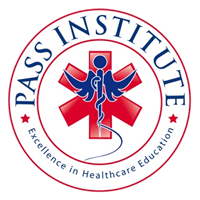
Financial aid (may be available)

No cost info

Financial aid (may be available)

Financial aid (may be available)
No cost info
When you take part in Cal State East Bay’s Home Health Aide Certificate Program, you’ll be joining a comprehensive program that prepares you to give quality, personal care in a client's home with an emphasis on understanding basic human needs, eldercare, working with illnesses, nutrition, special diets, and home management. With our program, you'll gain the confidence to provide quality in-home care and become an essential part of a diverse community.
No cost info
No cost info

$620 total
$550 total
$975 total
$700 total
No cost info
$1,350 total
$399 total
If you prefer hands-on care in a home setting over a clinical environment, becoming a Home Health Aide (HHA) could be ideal. San Jose residents can complete state-approved training, pass a competency evaluation, and launch a meaningful healthcare career right in their community.

A Home Health Aide (HHA) is a certified caregiver who:
Learn more about the duties of a home health aide.
To become an HHA in California, you must:
For maximum flexibility, consider online-hybrid options that combine virtual lectures with local clinical placements. These programs let you study anywhere while ensuring you meet California’s hands-on training requirement.
Some nonprofit agencies and community centers offer subsidized HHA training for eligible candidates. Check your local workforce development board or community college for grants and fee waivers.
Finding the right Home Health Aide class can be a crucial step in your career journey. Here are a few factors to consider:
After training, schedule and pass the CDPH competency exam (written + practical). Once you clear both portions, you’ll receive your HHA certificate and can register with the state.
After certification, Home Health Aides can find opportunities through home health agencies, private clients, assisted living facilities, or healthcare staffing agencies. Networking with healthcare professionals and attending job fairs can also help. You can explore local job openings on MyNextMove to see current Home Health Aide positions in your area.
After becoming a Home Health Aide, you may want to advance your healthcare career by enrolling in additional training programs. Here are a few possibilities:
Certified Nursing Assistant (CNA): Becoming a CNA allows you to provide more advanced care to patients.
Medical Assistant: Medical Assistants perform administrative and clinical tasks in healthcare facilities. Find out more about becoming a Medical Assistant in California
As a Home Health Aide, there are several opportunities for career advancement. You can choose to specialize in a certain type of care, such as geriatric health or pediatric home health. You could also pursue further education to become a Registered Nurse or a Licensed Practical Nurse.
Becoming a Home Health Aide in San Jose offers stable demand, competitive pay, and the chance to transform lives every day.
Explore Home Health Aide classes near you on Dreambound and start your journey today.
For more insights, be sure to check out our other guides:
Exploring diverse professional options? Take a look at these resources:
Dreambound's platform allows prospective students to find the right educational program for them through searching, filtering, and connecting with our extensive selection of career & technical education partners.
Dreambound has over 70 programs across healthcare, technology, business, and industrial trades. This includes programs such as Medical Billing, Cybersecurity, and welding.
Some of our schools offer financial aid for those who qualify. Many others offer payment plans, where you can pay the cost of class over time.
Yes, Dreambound offers many online programs. On Dreambound's search, you can filter by online, in-person, and hybrid (part online, part in-person).
Dreambound is completely free for you to use! We are supported by schools and organizations who pay to advertise on our website, so we can offer all of our career resources for free.